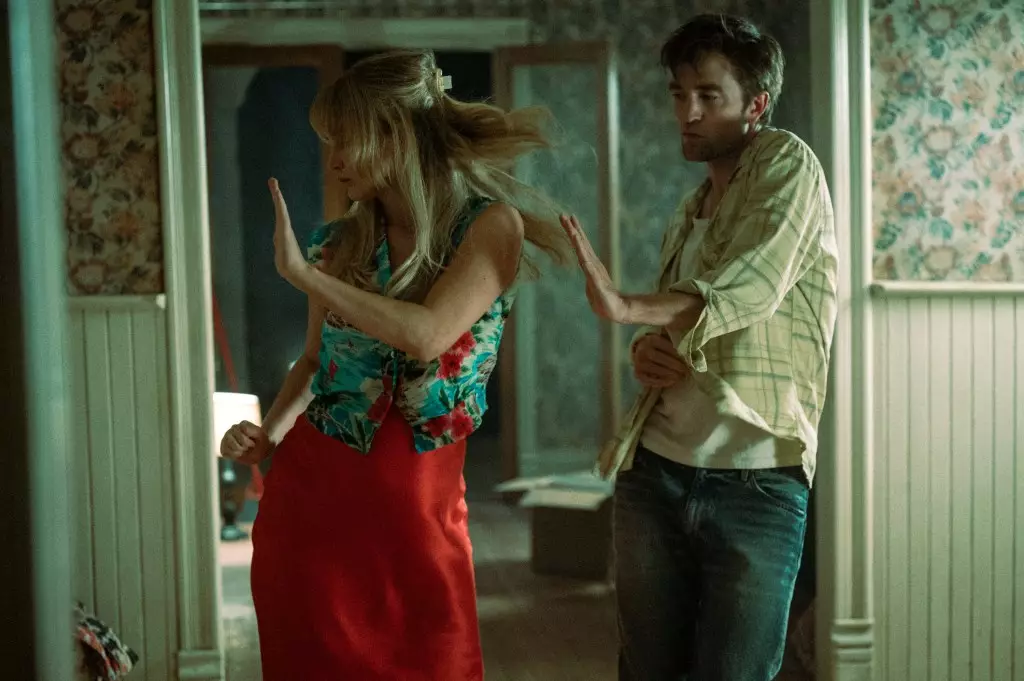In a fiercely competitive landscape marked by industry giants, Mubi has emerged as the victor in securing the domestic and multiple international rights to Jennifer Lawrence’s highly anticipated film “Die My Love.” As distributors like Apple and Netflix entered the fray in a bidding war that reportedly soared into the mid-$20 million range, Mubi’s commitment to releasing the film on 1,500 screens reflects both ambition and strategic foresight. This decision marks a significant milestone, not only for Mubi’s expansion plans but also for its chief, Jason Ropell, following their artistic success with “The Substance” during the last Oscar cycle.
The significance of Mubi’s acquisition cannot be overstated. As an arthouse studio, it is keenly positioned to cultivate niche audiences and cater to cinephiles who relish compelling, character-driven storytelling. Balancing both critical acclaim and commercial appeal, Mubi seems poised to maximize the impact of “Die My Love,” connecting with viewers who value emotional depth as much as cinematic artistry.
The Narrative Landscape: A Dive into Psychological Turmoil
“Die My Love,” directed by Lynne Ramsay—an artist reveling in recognition for her previous works—delves into the harrowing experience of post-natal depression, a narrative often shrouded in stigma. With Lawrence showcasing raw vulnerability in her portrayal of a woman’s painstaking descent into mental oblivion, the film promises a visceral viewing experience that compels audiences to confront uncomfortable truths. This exploration is timely and necessary, illuminating the silent struggles many women face, not merely as mothers but as individuals facing societal pressures and personal crises.
The film adapts from Ariana Harwicz’s 2017 novel, weaving a tale that intricately intertwines domestic challenges with profound psychological themes. Alongside Lawrence, the cast includes notable actors like LaKeith Stanfield and Sissy Spacek, adding layers of complexity to the story. Robert Pattinson’s role as the husband further complicates the emotional landscape, bringing male perspectives on mental health and relational fragmentation into focus.
Critical Reception: A Mixed Bag with Melodic Praises
As the dust settles post-premiere at Cannes, reactions to “Die My Love” have been varied, highlighting the polarizing nature of Ramsay’s bold storytelling. Critics have expressed divergent views, yet a consensus emerges around Lawrence’s stellar performance. Damon Wise’s review in Deadline encapsulates the film’s duality—”brutal but beautiful”—indicating that while the narrative may be challenging, it is also capable of evoking profound empathy.
The palpable energy among critics alludes to the possibility that Mubi may have secured an awards contender. Lawrence’s capacity to resonate with an audience could well pave the way for her fifth Oscar nomination, depending on how effectively the film’s marketing and distribution are managed. Ramsay’s direction is also being lauded, suggesting it may be a pivotal moment in her career, extending her reach and acclaim within the cinematic world.
Mubi’s Ascendancy: An Eye on the Future
As Mubi strategically acquires titles that push boundaries, their recent success at Cannes reflects a broader ambition to cultivate significant artistic voices. With this lone victory in a competitive market, coupled with previous titles in competition, Mubi is signaling an aggressive expansion into mainstream consciousness while retaining its core identity as an avant-garde studio.
By prioritizing quality storytelling and complex characters, Mubi exemplifies a significant transformation in film distribution, shifting away from the might of traditional studios toward a new paradigm that champions unique narratives. This progressive approach could redefine audience expectations, paving the way for more nuanced representations in mainstream cinema.
While “Die My Love” holds the potential for critical success and audience engagement, Mubi’s continued success will hinge on its ability to maintain this momentum. As they nurture emerging talent and select captivating narratives, Mubi could very well change the game for arthouse cinema, proving that there is indeed a fervent audience for films that challenge the status quo.
